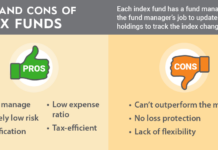Fintech companies and mobile-money startups have long relied on traditional banks to operate, but that could soon change.
The FDIC approved bank startup Varo’s charter application on Monday, which means Varo can start holding customer deposits.
Receiving an official bank charter has been part of Varo’s vision from the very beginning, and we are excited to progress through the necessary steps to accomplishing that goal, said Colin Walsh, CEO of Varo Money.
Fintech companies like Varo usually have to depend on traditional banks to hold customer funds. That has led to a lot of partnerships, the most well-known being Apple and Goldman Sachs partnering up for the Apple Card.
The San Francisco-based company partners with Bancorp, but the funds will be transferred directly to Varo in the second quarter, assuming final regulatory tests go well, and the necessary approvals are obtained from the Fed and OCC. The company is valued at $417.8 million and is backed by TPG and Warbug Pincus.
What’s Next for Fintech?
Varo’s FDIC approval is a big step for fintech companies, as it’s the first consumer-facing challenger bank to obtain regulatory approval. Fintech banks have been fighting for years for regulators to give them the same regulatory approval as banks.
We should not underestimate how significant this is for the banking industry as it’s the first time a mobile-centric company is poised to be a chartered bank in the United States. Getting through this very high regulatory hurdle now opens the door for Varo to become the biggest mobile-centric national bank, Jo Ann Barefoot, former deputy comptroller of the OCC said in a press release.
Charter approval for banks has improved since the financial crisis of 2008, with the FDIC approving nearly a dozen last year. But the process has been slower for mobile-based companies in the U.S.
America has remained behind its counterparts in Europe, with regulators in the U.K. and Germany supporting mobile banks like Monzo and N26.
Traditional Banks Beware

Fintech enthusiasts have long argued that the challenger banks will change the banking industry and make traditional banks nearly absolute.
For years it seemed their predictions would come to nothing, as the FDIC and other regulators continued to delay bank approval for fintech.
But now it seems traditional banks could be in trouble. The risk remains that they could copy the tech and innovation of younger startups. Companies like Goldman Sachs have opened up mobile-only banks like Marcus to appeal to younger generations. Incumbent banks have the funds that younger companies lack. Whether or not they are up for the challenge remains to be seen.











